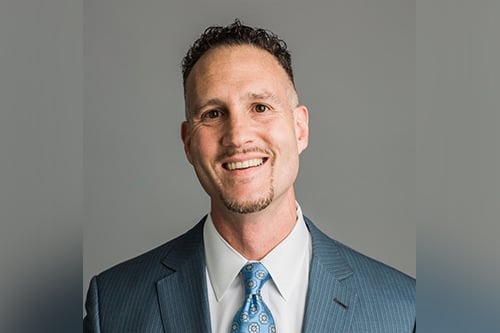Mortgage veteran turned career expert on the mistakes underwriters make

2020’s mortgage boom seemed to reset the clock for much of the US housing industry. Home builders, sluggish for a decade, ramped up construction to meet record new demand. Originators experienced the best volumes of their careers. Underwriters lost their sometimes-overlooked status and became crucial players in the industry as high volumes taxed existing underwriting resources.
Now underwriters are enjoying salary bumps, bonuses, and courtship from recruiters. Salaries, by some estimates, have doubled, and even conservative assessments put a six-figure salary well within a moderately experienced underwriter’s grasp. But how should underwriters navigate the market and their new in-demand status? What mistakes can they make as they go job hunting, and will these days of plenty end when volumes decrease?
“This underwriter shortage started well before 2020,” said Larry Silver (pictured), CEO of Superus Careers and a 20-year veteran of the mortgage business. “After 2008, when the industry was doing badly, you didn’t have a lot of people going into these highly skilled underwriter positions…Now you get the lowest interest rates in history and mass production across the board. All of a sudden, we don’t have enough underwriters who are probably the centerpiece of the mortgage process.
“You have a general shortage of talent to begin with and, on top of that, the whole world decided to go remote and the geographic boundaries of recruiting and talent dropped. Now you have a rush of employers going after underwriters who were in short supply to begin with.”
Read more: The underwriter shortage could derail your 2021
Silver estimates the salary range most underwriters are commanding today to be between $80,000 and $120,000 per year, with the higher earners boasting both experience and qualifications for non-conventional loans like FHA or VA. He’s heard stories of much higher salaries being offered, but believes most underwriters can still expect to fall in that range before bonuses and other incentives.
While some fintechs are developing automated processes aimed to expedite loans and take underwriters out of the process somewhat, Silver said that the nature of the mortgage process requires the kind of human analysis only an underwriter can provide. He expects, therefore, this salary range to last for underwriters into at least the medium-term.
Silver explained that just because there’s more money on the table, underwriters shouldn’t go rushing after a new gig with a big signing bonus. He stressed the importance of self-assessment for these underwriters and an understanding of where their personal and professional goals align. They should also stay cognizant of cultural fits as they consider making a move.
“Does it really make sense to make a move, just to make a move?” Silver said. “Is the grass always greener on the other side?”
Read more: Loans are taking almost two months to close, what can originators do?
While he acknowledges it’s exciting to be courted, Silver stressed that underwriters need to remain true to their own career goals and aspirations and not be derailed by a big shiny offer that, in the long run, won’t fit.
Silver also stressed the importance of assessing the company. He said that underwriters should examine what growth stage the company’s at to determine whether they may just be a cog in an existing machine or if they’ll have the chance to grow as a leader in a more up-and-coming outfit. Underwriters going job hunting need to think about where they’ll be past a low-rate/high-volume environment.
As for the industry as a whole, Silver stressed that to prevent another underwriter shortage, lenders need to do a better job recruiting young talent. He said that larger more established companies need to be building career paths and educational structures that can capture the next generation of underwriters. He believes the future for underwriter recruitment will involve creating greater stability in a role that has, up until now, been largely defined by the mortgage cycle.
“It is a front-end investment,” Silver said. “I think a lot of companies just aren’t willing to make that investment because traditionally, it’ll take three, four or five years for somebody to come in and grow and develop to ultimately become an underwriter. And you have to have that long term vision versus just filling the holes today, which is what most mortgage companies that I know have done.”



